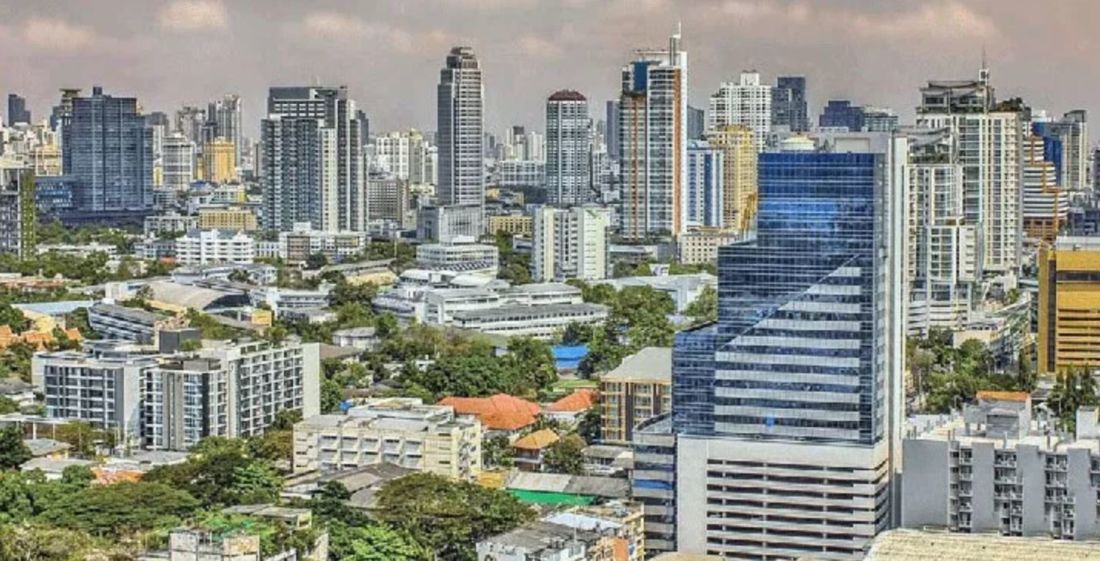Sean Danley has spent the past six months scouting office space in Yangon after being sent to establish the Myanmar branch of his US-based employer.
He looked in the city’s three sole 1990s-era towers, where annual rents have climbed to more than US$100 (3,100 baht) a square foot, compared with less than $75 in downtown Manhattan, according to broker CBRE Group Inc. “Too expensive,” he said.
The villas he considered either did not have safety exits, were not clean, required sharing space with other companies, or were in odd locations – all unsuitable to the image of his $29 billion in revenue engineering and construction company, which he said he was not authorised to identify. After seeing 10 places and losing one possibility to someone faster with his bag of money, Mr Danley is still looking.
“We can’t move into a space where someone’s cooking up nasi goreng on the sidewalk all night,” he said, using the Indonesian name for fried rice.
Developers are rushing to solve Mr Danley’s problem, one also faced by hundreds of multinational companies setting up operations in Myanmar following its political opening and easing of international sanctions.
Yangon, the commercial capital, needs at least 8.7 million square feet (800,000 square metres) of office space to support the influx, according to Yoma Strategic Holdings. About 1.9 million square feet will be available by the end of 2015, compared with 600,000 now, the Myanmar office of broker Colliers International UK Plc estimated.
“With rentals going up, and the shortage going to become more acute in at least the next seven years, it’s an attractive market for foreign developers,” said Cyrus Pun, executive director of Yoma, a Singapore-listed company that derives most of its revenue from developing property in Myanmar and has seen its share price more than double since the April 2012 elections and subsequent loosening of sanctions that have allowed less- fettered foreign investment.
“There’s still a big gap to be filled,” he said in a telephone interview, adding that Yoma is in confidential talks that may lead to joint projects with Japanese, Singaporean or Indonesian developers. Whatever is being built right now will not satisfy the immediate demand.
The opportunity has lured other Southeast Asian developers, including Singapore-listed Soilbuild Construction Group and Vietnam’s HAGL Joint-Stock, along with Hong Kong’s Shangri- La Asia. Each has announced an office, retail, residential apartment or hotel project that it plans to build or manage. At least three more office buildings are being built by local developers, Mr Pun said.
“There is a feeling that this is the last great adventure there may be in Southeast Asia in terms of a market opening up,” said David Simister, chairman of CBRE Thailand.
Rents have increased almost fivefold in Yangon’s three towers, none of which is higher than 27 stories, from $22 a square foot a year as of the end of 2011, before Myanmar President Thein Sein began allowing more political freedom and loosening economic controls, according to CBRE data. Tenants already in the three buildings — Sakura Tower, FMI Centre and Centrepoint Towers – include Standard Chartered, PricewaterhouseCoopers, Coca-Cola, Nestle SA, Sumitomo, Bank of Tokyo- Mitsubishi UFJ and Malayan Banking Bhd.
While awaiting new office space, some companies have turned to hotels. Mizuho Corporate Bank picked the Sedona Hotel, located along Inya Lake near the US embassy and University of Yangon. It has seen rent more than double to $6,720 a month for the 1,000 square feet it occupies from $3,200 in April of last year, according to its country representative, Tetsuro Nonaka. Other tenants are Hyundai Heavy Industries, Yamaha Motor and Kawasaki Heavy Industries, according to signs outside the hotel.
Unilever NV, the world’s second-largest consumer-goods company, is among companies that have rented villas, such as the one’s Mr Danley considered, driving their prices skyward. A four- bedroom residence that rents at $6,500 a month will probably rise another 46%, to $9,500, by the end of the year, said Brett Miller, the managing director of Scipio Services, a Yangon-based real estate advisory and facilities management company.
“Prices are going up by the week,” said Cherie Aung-Khin, a local restaurateur who wants to expand her Green Elephant eatery, which serves Burmese cuisine and is popular with foreign visitors. In early June, she viewed a 3,000-square-foot space for a second outlet for $3,800 a month. When she returned from a trip to Bangkok two weeks later, the landlord had raised the rent to $4,500. After negotiations, she settled for $4,200, she said.
Next month, “we’ll have a higher demand gap than we saw this month, and rents are bound to go up again,” Ms Miller said.
“International developers will probably seek partnerships with local counterparts in a country where they’re not yet sure of rules and regulations,” Mr Pun said. For large-scale projects, some foreign companies bring their own workers from outside, while also using local resources available, he said.
Whilst labour is in abundance, lack of well-skilled construction workers and supervisors is certainly a feature in Myanmar, he said.
Ambiguous laws related to construction and ownership of property are keeping some away. Far East Orchard, a unit of Singapore’s largest closely held developer, Far East Organisation, is not rushing to invest.
“It’s a very cowboy town,” Lucas Chow, Far East Orchard’s group chief executive officer, said at a press conference in Singapore on July 2. “The rules are not exactly clear; the laws are not exactly clear; the concept of mortgages is not clear; condominium laws are also not clear. So many things arent clear, so I don’t think we have an appetite for that kind of market.”
Source: http://www.bangkokpost.com/news/asia/362207/office-rental-costs-skyrocket-in-yangon


